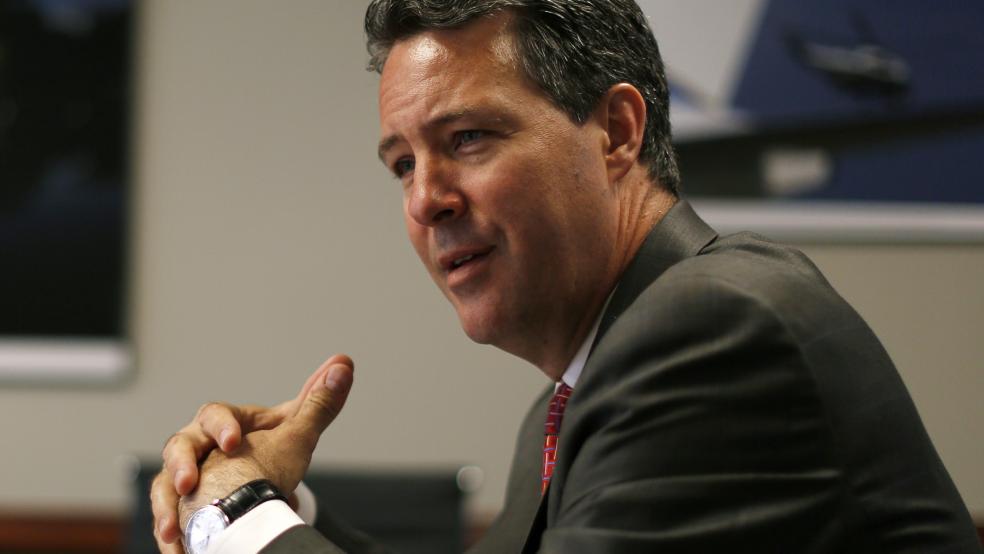In another of the depressingly long list of examples of U.S. regulators stepping out of their government jobs and into well-paid sinecures with the very industry they recently regulated, it was announced today Scott O’Malia, a member of the Commodity Futures Trading Commission, will leave his post to take a job as CEO of the International Swaps and Derivatives Association (ISDA).
Coincidentally, ISDA will face the CFTC in court just next week, in a lawsuit the group joined challenging the agency’s policy on cross-border derivatives transactions.
In Washington, where the former chief lobbyist of the cable television industry now runs the Federal Communications Commission, and a former FCC chair is now the top lobbyist for cable companies, this probably shouldn’t surprise anyone.
However, some good government groups were still able to muster up a little outrage.
Related: Why This Government Watchdog Needs Watching
“The perception that government is bought and paid for by lobbyists is reinforced when you see things like this,” said Lisa Gilbert, director of Public Citizen’s Congress Watch. “Particularly at a time when there is so little trust in Wall Street and the CFTC is implementing very sensitive regulations.”
"This is why Americans are so disgusted with so many high government officials and believe that Washington is in cahoots with Wall Street," Dennis Kelleher, the head of banking reform group Better Markets, told Reuters.
O’Malia, one of the five current commissioners of the CFTC, will take over as CEO of ISDA next month. ISDA represents the interests of over-the-counter derivatives markets and their users.
Related: The Pentagon Paid $5,000 for an $800 Helicopter Part
In a statement, ISDA Chairman Stephen O’Connor said, “Scott is the right person to lead the industry and ISDA through the many structural changes…that are reshaping the global derivatives markets.”
Not surprisingly, ISDA is looking to do a little reshaping of its own, as the pending lawsuit indicates. In addition to constant efforts to change proposed regulations in ways that benefit the industry it represents – one of any Washington trade association’s core jobs – the group is currently charging that the agency broke the law when it implemented the new cross-border trading policy, and that it must be rolled back.
O’Malia was the only member of the CFTC to vote against the policy that the ISDA lawsuit addresses and, while there is no evidence to suggest a quid pro quo, government reform activist say it sends a terrible message.
“This is the kind of move through the revolving door that causes the public to be very cynical about the regulatory process,” said Michael Smallberg, an investigator with the Project on Government Oversight. When a top regulator leaves to take a job like this, he said, it naturally makes people wonder whether he was using his tenure to “advance” policies favorable to the industry.
Top Reads from The Fiscal Times
- The Long-Term Unemployed May Finally Get a Break
- Wages Rise and – Surprise – Skilled Workers Are Now Easier to Find
- Dump Terrorism Insurance Bill, Lose Investment and Jobs





